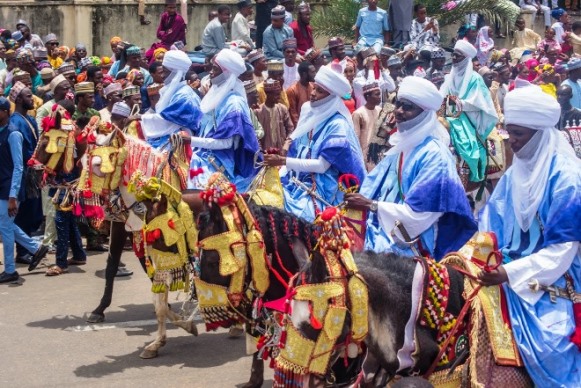Kano State experienced significant economic losses over the weekend after the abrupt cancellation of the historic Sallah Durbar festival.
Grassroots Parrot reports that the state police command banned the Sallah Durbar, citing security concerns — a development that sparked fear among tourists and potential investors.
The UNESCO-certified global cultural event was expected to host over 160 foreign tourists, who were left stranded following the last-minute cancellation, according to the Kano State History, Culture and Tourism Bureau.
The Kano Durbar—recognized as the largest horse-riding gathering in the world—boasts a history spanning over 500 years. It gained international acclaim when it was inscribed on UNESCO’s Representative List of the Intangible Cultural Heritage of Humanity in December 2024.
Local entrepreneur Ahmad Sarki Norma expressed deep concern over the economic impact of the cancellation, describing it as a blow not only to small businesses but also to the cultural and traditional fabric of Kano.
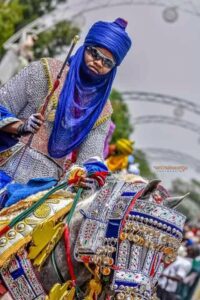
“Nearly 90% of the costumes we use during the Durbar are handmade. This event stimulates massive business for local artisans who weave and craft horse accessories and riders’ costumes. Cancelling it is like cutting off their source of livelihood,” he said.
READ ALSO: UPDATED: Why Kano Police Banned Salah Durbar For Two Consecutive Years
Norma also highlighted the ripple effects on informal vendors: “People come from villages with as little as ₦5,000 to sell bottled water and beverages, making substantial profits. That income is now lost.”
Speaking on the cost of participation, he explained, “A traditional toberida can cost at least ₦150,000 and you’re expected to wear four. Horse costumes range from ₦30,000 to as high as ₦4 million.
“Personally, I spent no less than ₦2.5 million for my four horses this year. One of my horses is worth $10,000, another $20,000—these are bred and maintained specifically for the Durbar.”
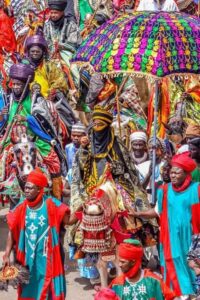
Ahmad Abba Yusuf, Executive Secretary of the Kano State History and Culture Bureau, confirmed the massive economic impact on sectors such as transport, tourism, and hospitality.
“Several billions of naira were lost in the tourism sector alone. The production and marketing of horse materials and costumes were severely affected,” Yusuf said. “We have over 74 traditional title holders, each coming with at least 20 horse riders.
The amount spent on costumes, accommodation, transport, and food during the Durbar season drives a large part of the local economy.”
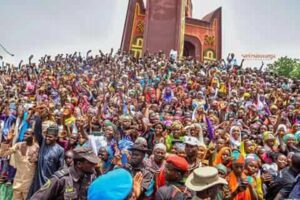
International tourists also expressed their disappointment. Virgil Taylor, a first-time visitor from the United States, said he had spent over a year planning his trip to Kano specifically to witness the Durbar.
“I only found out it was cancelled upon arriving. It was disheartening. But I was still thrilled to catch a glimpse of Emir Muhammadu Sanusi II during Sallah Day, which was a memorable moment,” Taylor said. “The people of Kano have been incredibly warm and welcoming, which made the experience worthwhile despite the setback.”
READ ALSO: Salah Durbar Ban Best Interest Of Kano – Emir Sanusi
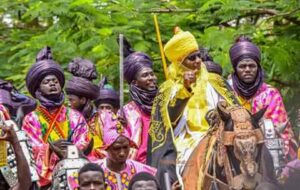
Similarly, Lekan Yushau Okanlawon, a UK-based tourist, lamented how the cancellation disrupted his plans to register the Durbar in the Guinness Book of World Records for the largest horse procession in the world.
“After UNESCO certified the Durbar in December 2024, we were all proud. I began discussing with UK polo players about witnessing this grand cultural display.
“Many were excited to join, having never participated in a horse procession of this scale. Unfortunately, I had to send them a last-minute SOS to cancel their trips,” Okanlawon said.
He added that their ultimate goal was to secure global recognition through Guinness World Records, showcasing Kano as the true epicenter of traditional horse-riding culture.

